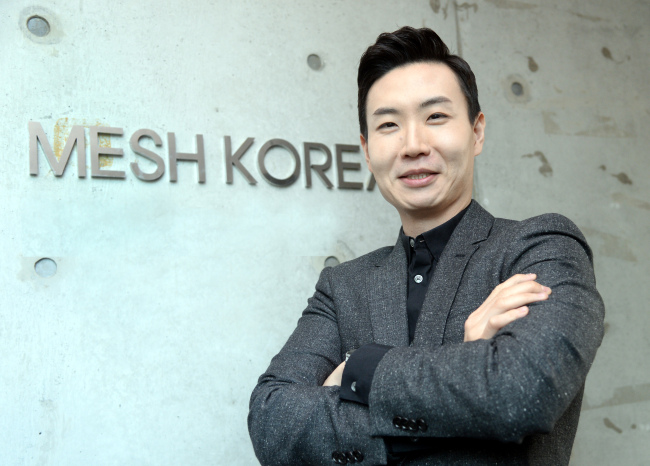[Herald Interview] Algorithm-based logistics service ready for export
By Korea HeraldPublished : March 17, 2017 - 18:00
Algorithm-based transport management system and data learning technologies are crucial for last-mile delivery services in the growing e-commerce market, the head of an information technology logistics firm said.
“We call it the AlphaGo of logistics,” said Rhyu Jung-bum, CEO of IT logistics startup Mesh Korea, referring to Google DeepMind‘s artificial intelligence program developed to play Go.
“High technology is really needed in order to address a vicious cycle in the current delivery service market.”
“We call it the AlphaGo of logistics,” said Rhyu Jung-bum, CEO of IT logistics startup Mesh Korea, referring to Google DeepMind‘s artificial intelligence program developed to play Go.
“High technology is really needed in order to address a vicious cycle in the current delivery service market.”

The company, better known for Vroong here, is a provider of an algorithm-based last-mile delivery service. The algorithm is named Vroong Engine and is designed for high logistics efficiency for clients by applying mathematics to the costs and risks of delivery services.
According to the founder, middlemen are essential to providing high-quality, on-time delivery services at reasonable costs.
“While deliverymen are struggling to get paid more, cargo owners intend to pay as little as possible,” he said. “The number of delivery orders is a new variable here that determines both cost and quality.”
The Vroong algorithm enables multi-loading of parcels with different destinations in accordance with a deliveryman’s capacity and the income he or she wants to earn.
Currently, Mesh Korea has about 13,000 motorcycle drivers for the delivery service, including both freelancers and full-time workers. The CEO aims to secure additional freelance drivers as he eyes the growing mobile commerce market. The company’s clients include CJ Korea Express, Burger King and E-mart.
“Until the order density rises to a certain level, directly hiring riders would be money-losing as seen in other companies’ services,” he said. “Small, but high-tech is the key.”
Rhyu’s ultimate goal is to develop the current solution as a logistical platform that operates on its own, like giant web portal Naver.
“We hope to make Vroong a platform,” he said. “What drivers need to do is just download the Vroong app, register as a driver, take orders at their will, complete the delivery and take money from the platform as well.”
After its successful launch in Korea and a newly clinched partnership in Singapore last year, Rhyu is spurring efforts to expand the local service to Japan and Turkey.
As part of globalization efforts, the company recently announced the establishment of a joint venture with network equipment provider Humax and scouted Choi Ji-hyun, an experienced outbound business strategist, as CEO of the new firm. Choi oversaw global businesses at SK Telecom, SK Planet and other large businesses.
Rhyu plans to export the Vroong TMS solution overseas with high demand for on-time, one-day delivery services.
“There are similar TMS businesses in the US and Canada, but their solutions are not suitable to Korea and other Asian countries,” he said. “Japan has a similar e-commerce market to Korea’s, considering mobile penetration, high population density and complex city divisions. There is high demand among one-person households for timely delivery.”
Japan will be the first overseas target this year. After making a successful reference in Japan, Rhyu hopes to extend to Turkey, Italy and Spain.
By Song Su-hyun (song@heraldcorp.com)
송수현기자@heraldcorp.com
-
Articles by Korea Herald



![[Herald Interview] 'Amid aging population, Korea to invite more young professionals from overseas'](http://res.heraldm.com/phpwas/restmb_idxmake.php?idx=644&simg=/content/image/2024/04/24/20240424050844_0.jpg&u=20240424200058)

![[Pressure points] Leggings in public: Fashion statement or social faux pas?](http://res.heraldm.com/phpwas/restmb_idxmake.php?idx=644&simg=/content/image/2024/04/23/20240423050669_0.jpg&u=)













